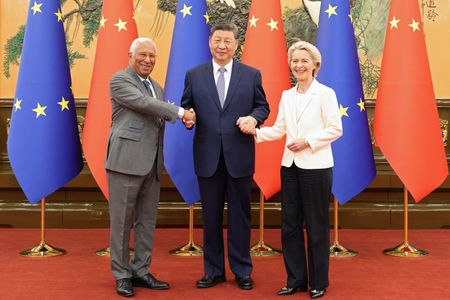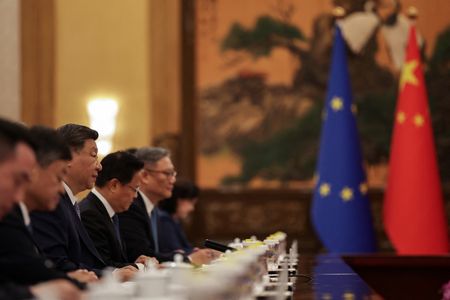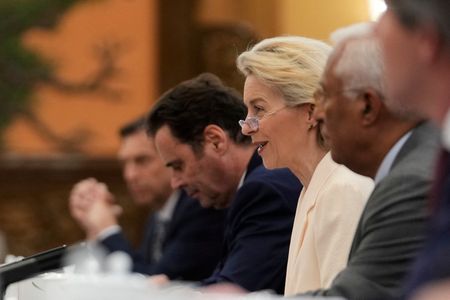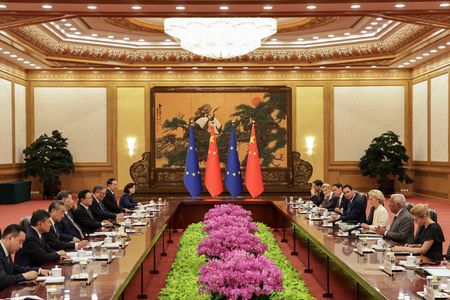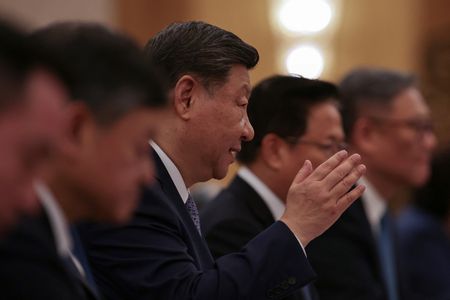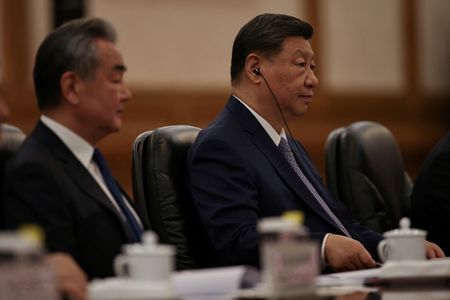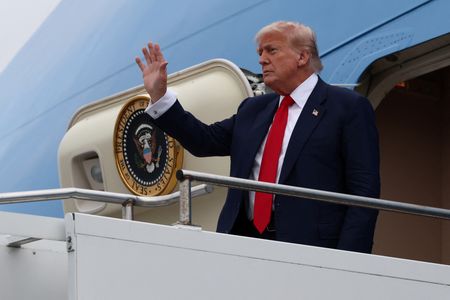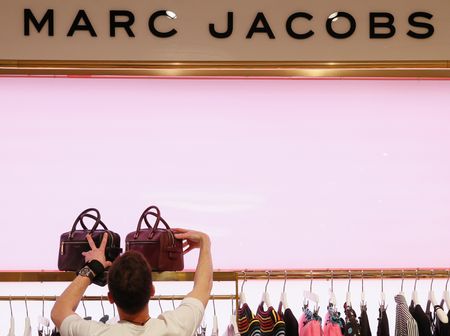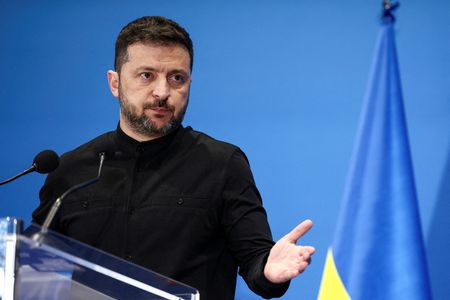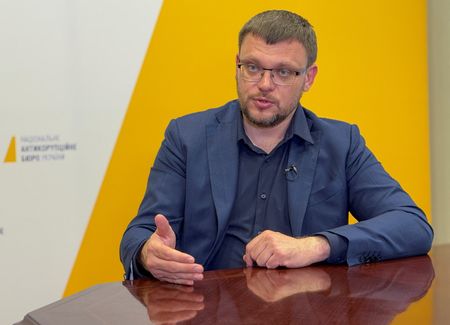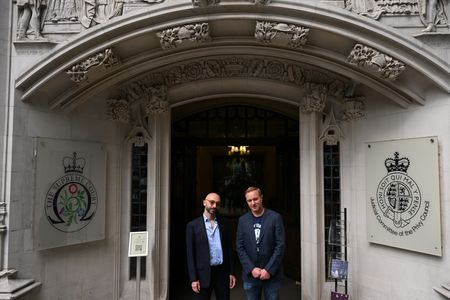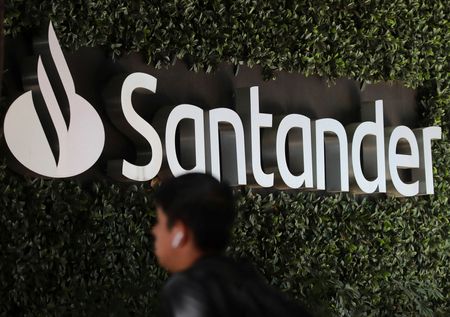By Laurie Chen, Liz Lee and Xiuhao Chen
BEIJING (Reuters) -EU-China trade ties have hit a “clear inflection point,” European Commission President Ursula von der Leyen said on Thursday in Beijing, capping a tense summit with top Chinese leaders dominated by concerns on commerce and the Ukraine war.
Expectations were low for the summit in the Chinese capital marking 50 years of diplomatic ties after weeks of escalating tension and wrangling that led to the duration being abruptly halved to a single day at Beijing’s request.
“We have very frankly and openly raised our concerns…on the trade, investment and geopolitical issues… We have partially identified solutions,” von der Leyen told a press conference after meeting with Chinese President Xi Jinping and Premier Li Qiang.
When asked about a potential trade deal with the United States, the EU chief said the bloc’s focus has been on achieving a negotiated solution, but all other instruments are on the table until “we have a satisfactory result.”
“Our relationship with China is of importance, but it stands on its own merits. It’s independent of the actions or issues we have with others,” she said.
Xi earlier told von der Leyen and European Council President Antonio Costa that the challenges facing Europe do not come from China, urging the bloc to “properly handle differences and frictions.”
“It is hoped that the European side will keep the trade and investment market open and refrain from using restrictive economic and trade tools,” Xi said, according to the official Xinhua news agency.
EU trade actions in the past year have targeted Chinese exports of electric vehicles among other goods, and its officials have repeatedly complained about Chinese industrial overcapacity as the bloc’s trade deficit with China ballooned to a historic 305.8 billion euros ($360 billion) last year.
Von der Leyen told the press that the Chinese leadership has started to look into the overcapacity issue, and expressed willingness to support more consumption.
“We think increasing market access for European companies in China, limiting the external impact of involution, and reducing export controls are important steps forward,” she told Premier Li earlier, according to a pool report.
She described her meeting with Xi as “excellent”.
The two sides also issued a joint statement on climate, reiterating their commitment to new climate action plans across the whole economy.
They will boost cooperation in areas such as energy transition, adaptation, methane emissions management and control, carbon markets and green and low-carbon technologies, the joint statement said.
‘LACK OF IMPETUS’
At the start of U.S. President Donald Trump’s second term, both sides had more of a consensus in working together to tackle trade challenges from the United States, said Cui Hongjian, a foreign policy professor at Beijing Foreign Studies University.
“Recently the situation has changed,” Cui said. “The EU has continued to compromise with the United States, which means that there is currently a lack of impetus for EU-China ties to become closer.”
After intense negotiations, the EU is likely to seal a trade deal with the United States for a broad tariff of 15% on its exports, down from 30% threatened by President Donald Trump.
At Thursday’s summit, the EU leaders also conveyed their expectations for China to discourage Russia in its war against Ukraine.
“What’s important is that we have a ceasefire and negotiations at the table take place, that there is a true and genuine willingness to find solutions to end the bloodshed,” von der Leyen said at the press conference.
Topics the Europeans brought up in the talks also included China’s rare earth export controls that disrupted supply chains worldwide, causing temporary stoppages in European automotive production lines in May.
“We need reliable and secure supplies of critical raw materials from China… we acknowledge China’s efforts on fast tracking licenses for critical raw materials, and we agreed to have an upgraded export supply mechanism,” von der Leyen said.
China’s exports of rare earth magnets to the EU surged in June by 245% from May, to stand at 1,364 metric tons, though that was still 35% lower than the year-earlier figure, customs data showed.
On Thursday, China’s foreign ministry defended the rare earths curbs as being “in line with international practice”, while pledging stronger dialogue and cooperation with relevant countries and regions in the field of export controls.
($1=0.8492 euros)
(Reporting by Liz Lee, Xiuhao Chen and Laurie Chen; Additional reporting by Amy Lv and Ethan Wang; Editing by Saad Sayeed, Clarence Fernandez and Toby Chopra)

